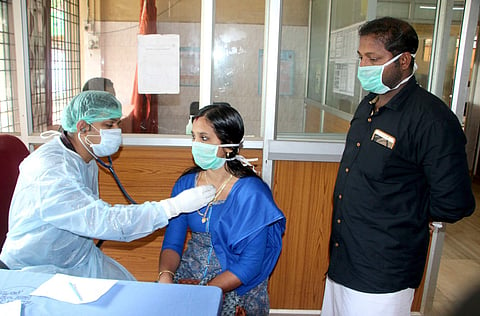Nipah scare: Thiruvananthapuram dons battle gear
THIRUVANANTHAPURAM: In the wake of a Nipah case being confirmed in Ernakulam, hospitals in the capital city are prepping up to deal with any sudden outbreak. The Government Medical College, Thiruvananthapuram, has already started an emergency ICU unit to accommodate patients.
"We called an emergency meeting, which had the staff of Prevention of Epidemics and Infectious Diseases Cells taking part in it. An isolation ICU unit has been set up on an emergency note. Awareness sessions will be conducted for staff as self-protection is very important. We have a full-fledged team ready to prevent and cure the disease. 24/7 services will be provided. While the mortality rate is 30 to 50 per cent, it is important to prevent it before spreading," said Dr Sharmad M S, superintendent, Medical College. He said there is no need to panic as Nipah can be cured through timely infection control methods.Doctors who specialise in communicable diseases restrict the public from animal exposure (pigs and bats).
ALSO WATCH | Nipah case confirmed in Kerala, 86 people under observation
"Nipah virus spreads from animals to humans through infected environmental contaminants like fruits. As it is mango season in Kerala, it is important to restrict, especially children, from consuming fruits directly from the trees. The symptoms start appearing from the third day and in some cases, it takes two weeks. Right after the symptoms shows up, one needs to go to the hospital without delay as the fatality rate is high," said Dr Indu P S, head of communicable diseases, Medical College. She said a set of tests are advised to diagnose Nipah virus including viral isolation, RT-PCR, and antibody detection by the ELISA tests.
According to Dr Rakesh Kumar, physician, General Hospital, the Nipah virus affects the human respiratory system and the central nervous system leading to severe complications in humans. "It is important to avoid close contact with people's bodily secretions, especially saliva. With intensive supportive care, it can be treated. Always cover your face while sneezing, do not spit in public places and use a kerchief while blowing the nose. Always be alert for common fever symptoms, including sore throat, headaches and dizziness, that could be a symptom of NiV too," he said.

